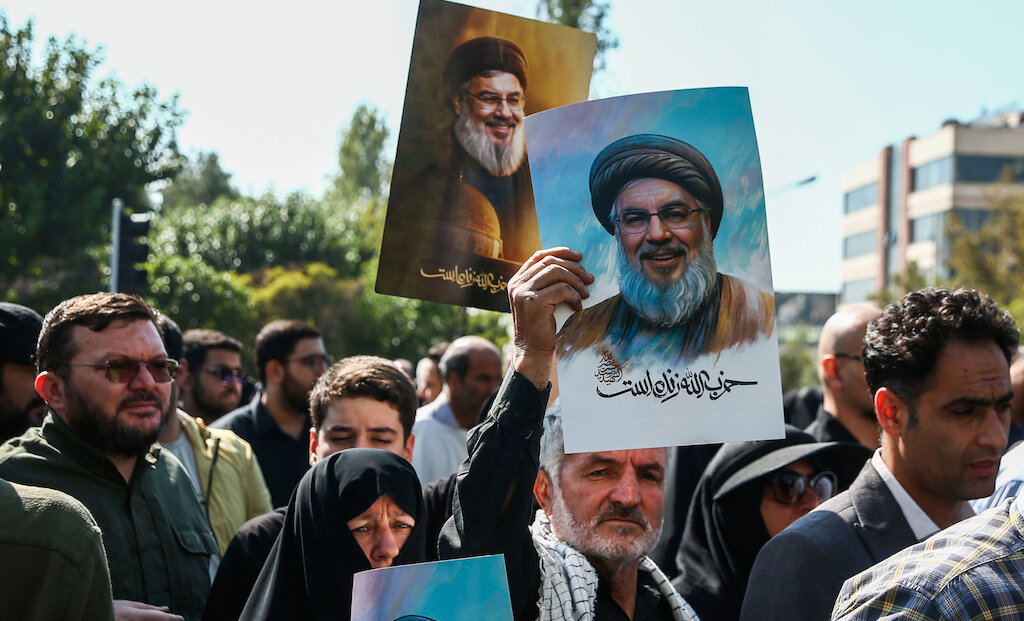ATS/TVPA Suit Against Former Mexican President Zedillo Dismissed Based on U.S. Suggestion of Immunity
On Monday, Judge Michael Shea of the District of Connecticut dismissed an ATS and TVPA suit against former Mexican President Ernesto Zedillo based on a Suggestion of Immunity filed by the Justice Department last September. The suit had been filed by families of Mexican civilians killed in a 1997 massacre during the Zapatista uprising, alleging that Zedillo was responsible for the actions of the Mexican
Published by The Lawfare Institute
in Cooperation With

On Monday, Judge Michael Shea of the District of Connecticut dismissed an ATS and TVPA suit against former Mexican President Ernesto Zedillo based on a Suggestion of Immunity filed by the Justice Department last September. The suit had been filed by families of Mexican civilians killed in a 1997 massacre during the Zapatista uprising, alleging that Zedillo was responsible for the actions of the Mexican military. When he was sued, Zedillo was (and still is) a professor at Yale. In a bench ruling, Judge Shea concluded that he was required to defer to the Justice Department’s Suggestion of Immunity. The Huffington Post's report of the decision is here.
Although Judge Shea’s decision was unremarkable and followed a long line of precedents, the Suggestion of Immunity last September was itself noteworthy in several respects.
First, it concluded that former President Zedillo enjoyed immunity for his official acts while in office. This was the first time the Obama Administration had filed a Suggestion of Immunity in a lawsuit against a foreign official where the immunity was based on the official’s conduct, rather than the official’s current status. The Justice Department's filing was consistent with the longstanding Executive branch position that the immunity of foreign government officials in U.S. courts should be based on determinations made by the State Department. The Justice Department had previously filed Suggestions of Immunity with respect to sitting heads of state (Paul Kagame of Rwanda and Mahinda Rajapaksa of Sri Lanka) based on their status as current heads of state. It had also filed a Suggestion of Immunity with respect to former President of Colombia Alvaro Uribe in an ATS case where Uribe was subpoenaed as a witness. Last December (after the Zedillo filing), the Justice Department filed a Suggestion of Immunity on behalf of two former Pakistani ISI Directors; this was the first time the Administration had asserted so-called “official acts” immunity on behalf of former foreign government officials who were not previously heads of state or government.
Second, the Justice Department waited for nearly one year after the suit was filed against Zedillo and until being asked for its views by the court before filing its Suggestion of Immunity. This was consistent with the Obama Administration’s surprising practice in the first term of delaying assertions of immunity on behalf of foreign government officials in human rights lawsuits. As I have noted previously, these delays raise concerns about reciprocal treatment of U.S. officials; the U.S. Government would be very unhappy if a foreign government delayed for a year before asserting immunity on behalf of a former U.S. President (e.g. President Obama) who had been sued in a foreign court with respect to his official acts. It would imprudent (and inconsistent with international practice) for the Administration to continue these delays in assertions of immunity for foreign government officials in its second term, especially as international criticism of the Administration’s own counter-terrorism practices mounts.
John B. Bellinger III is a partner in the international and national security law practices at Arnold & Porter in Washington, DC. He is also Adjunct Senior Fellow in International and National Security Law at the Council on Foreign Relations. He served as The Legal Adviser for the Department of State from 2005–2009, as Senior Associate Counsel to the President and Legal Adviser to the National Security Council at the White House from 2001–2005, and as Counsel for National Security Matters in the Criminal Division of the Department of Justice from 1997–2001.





